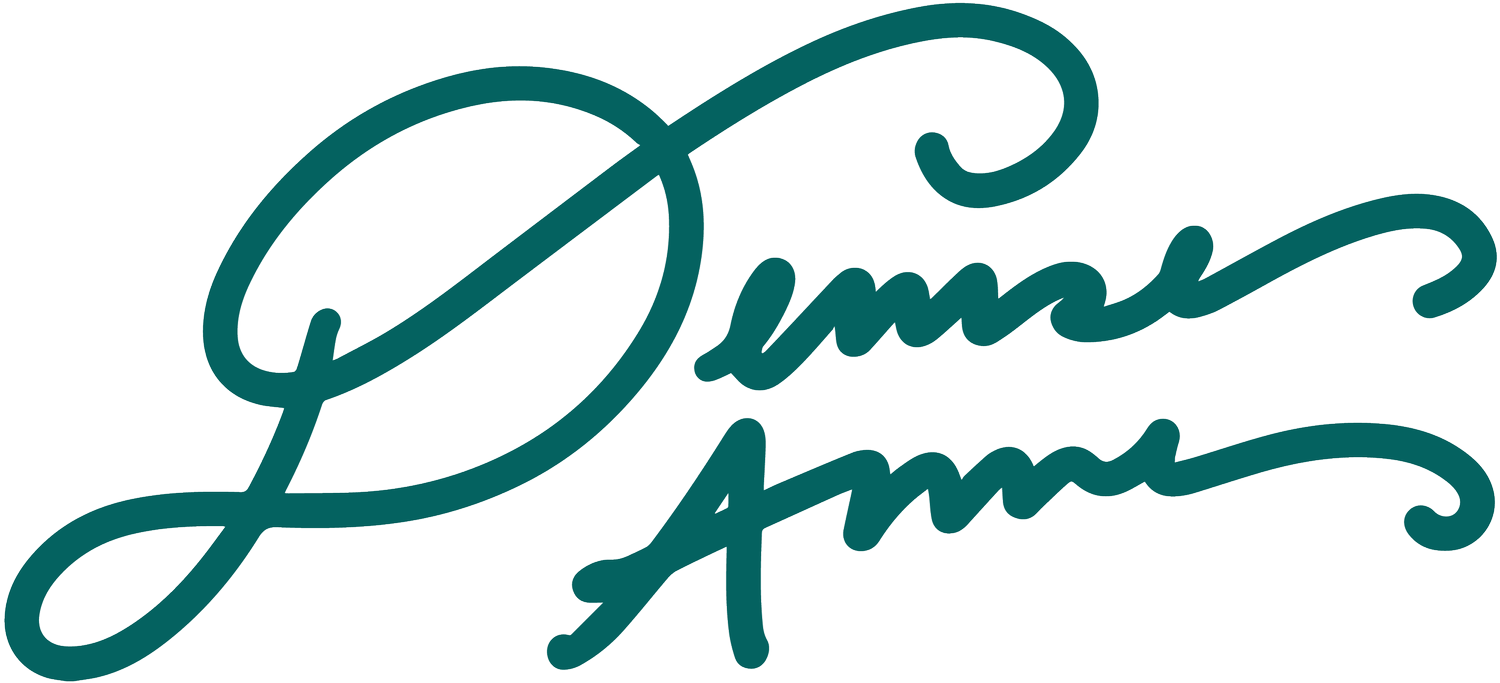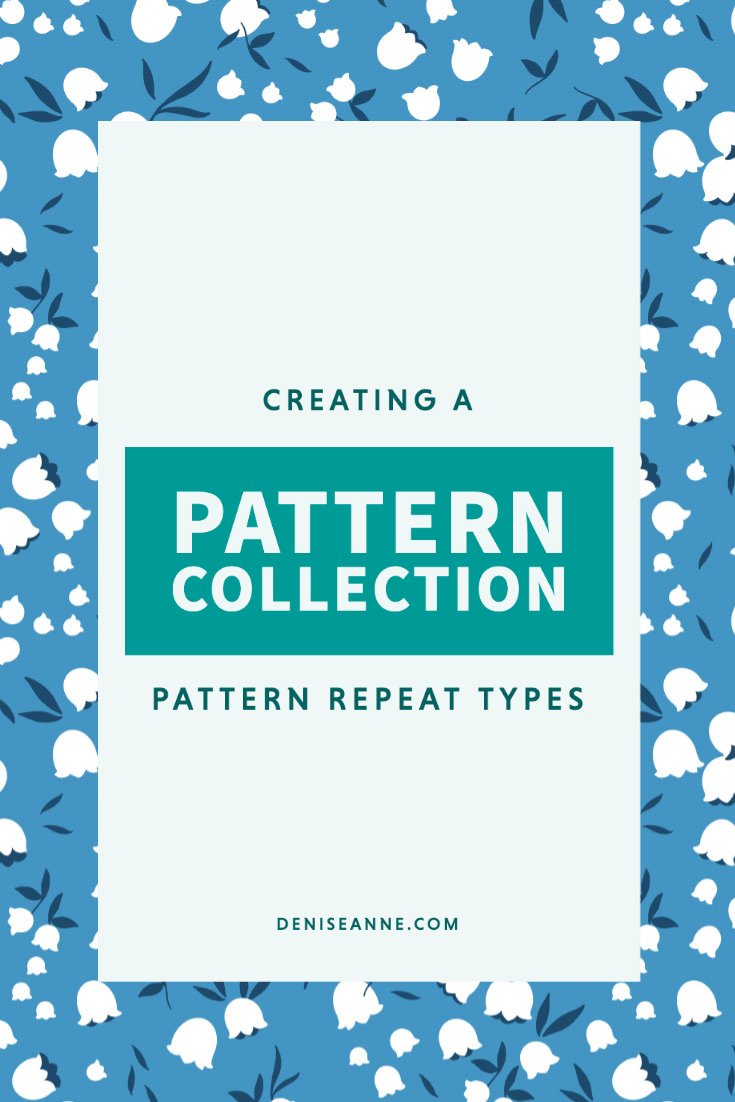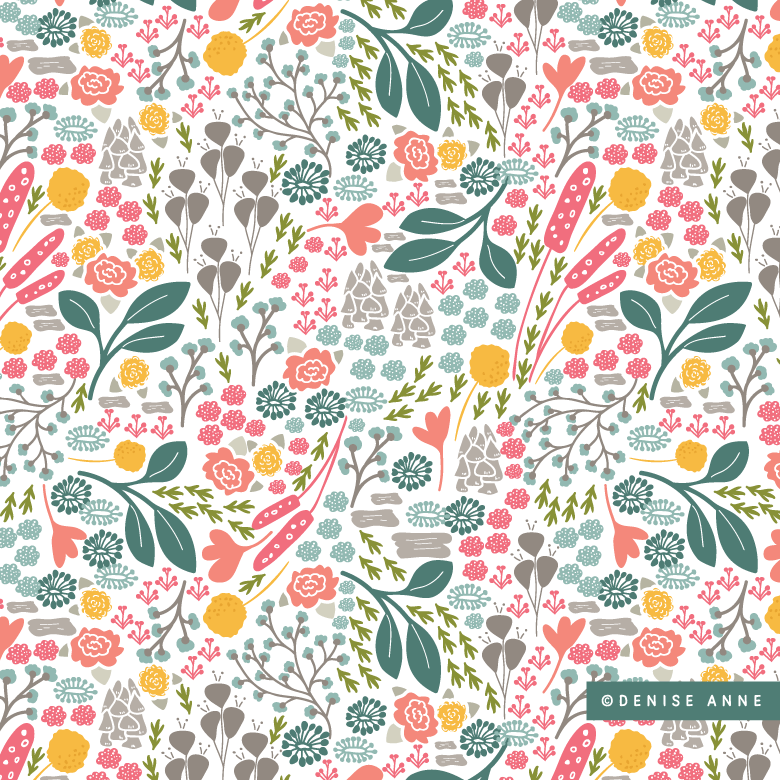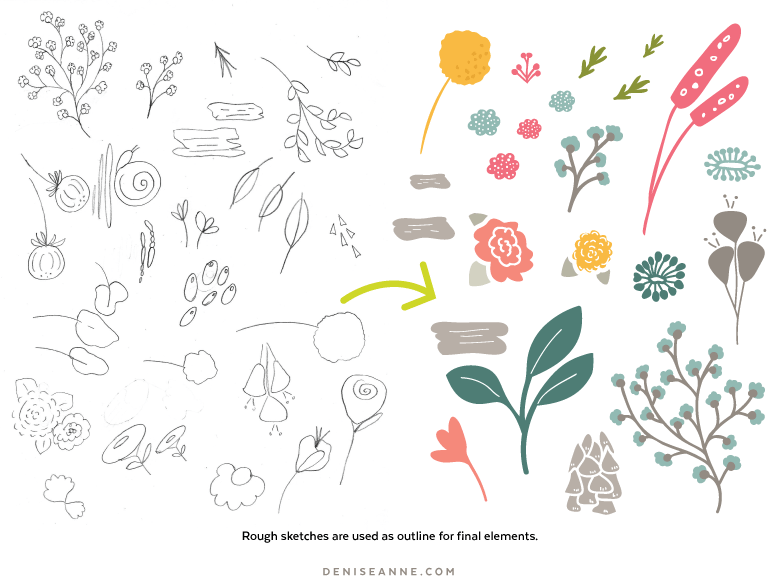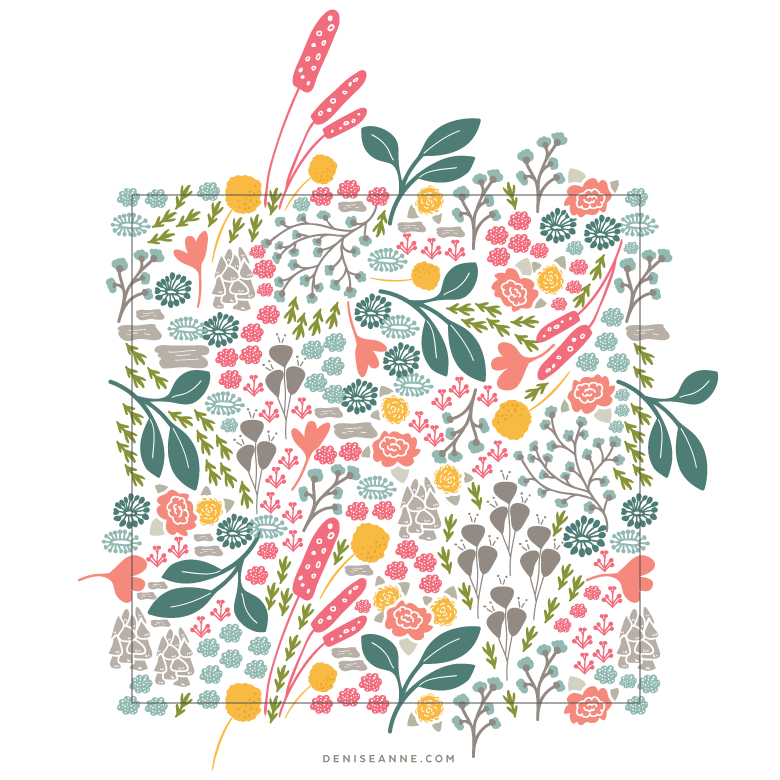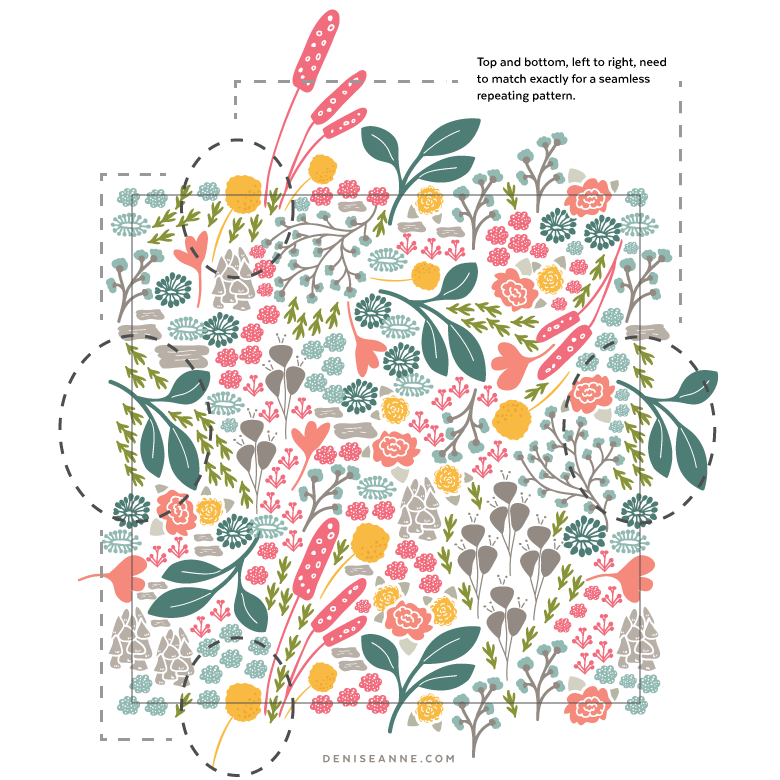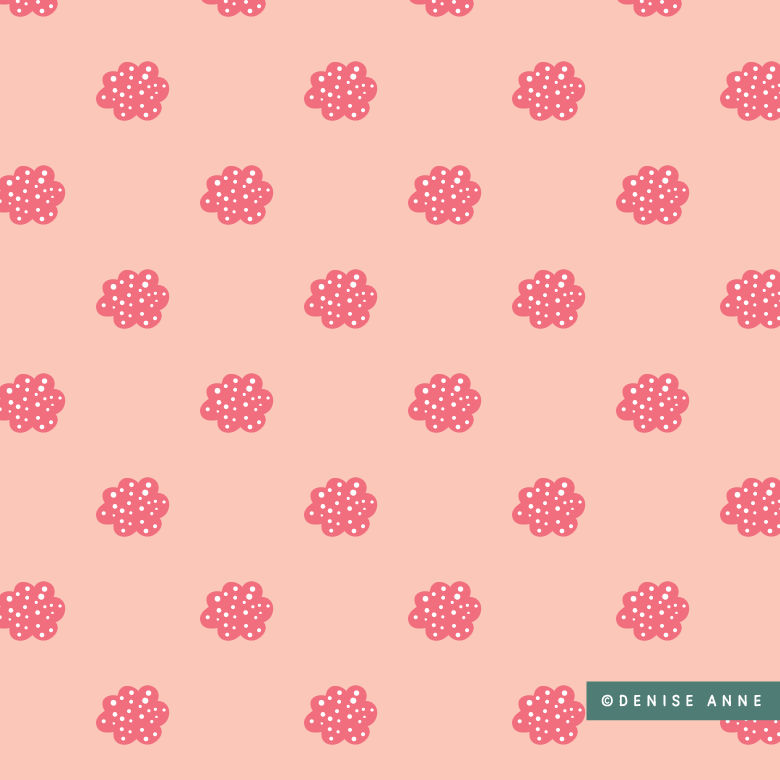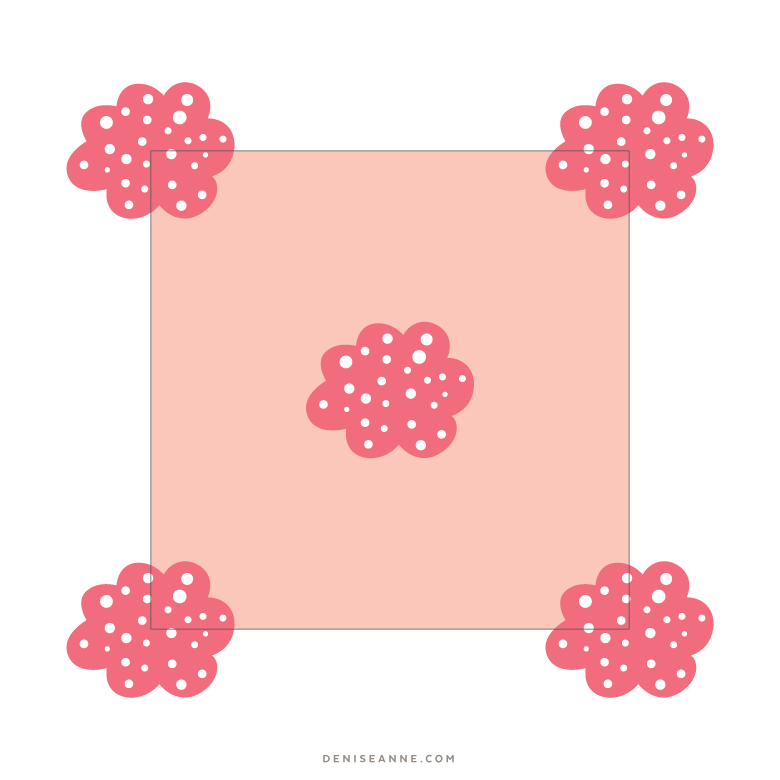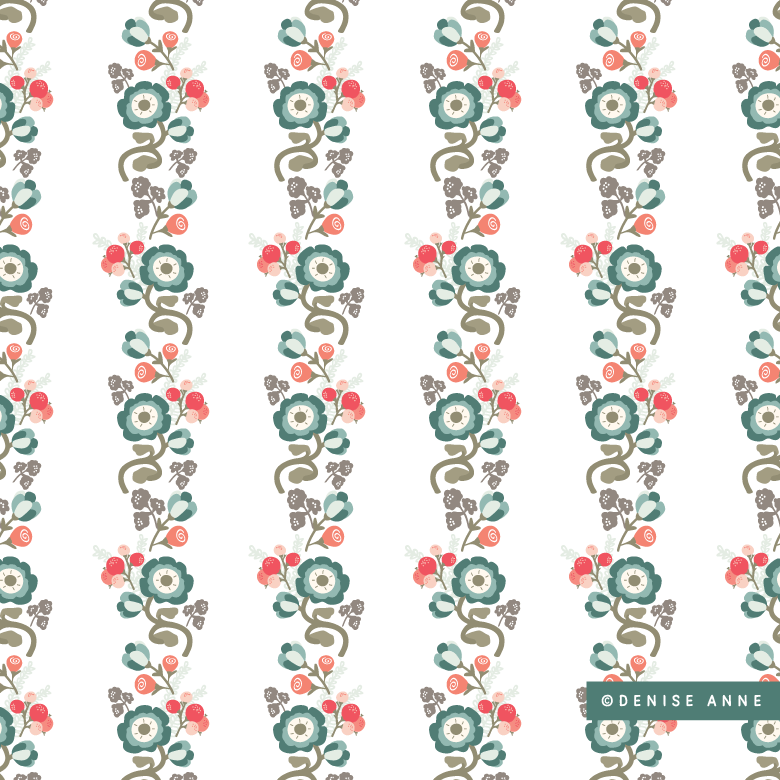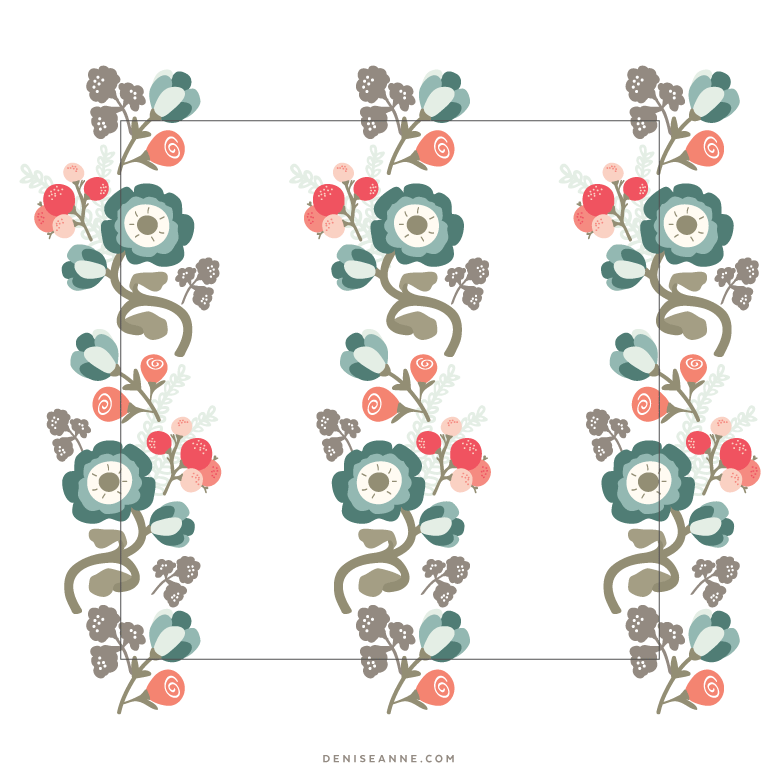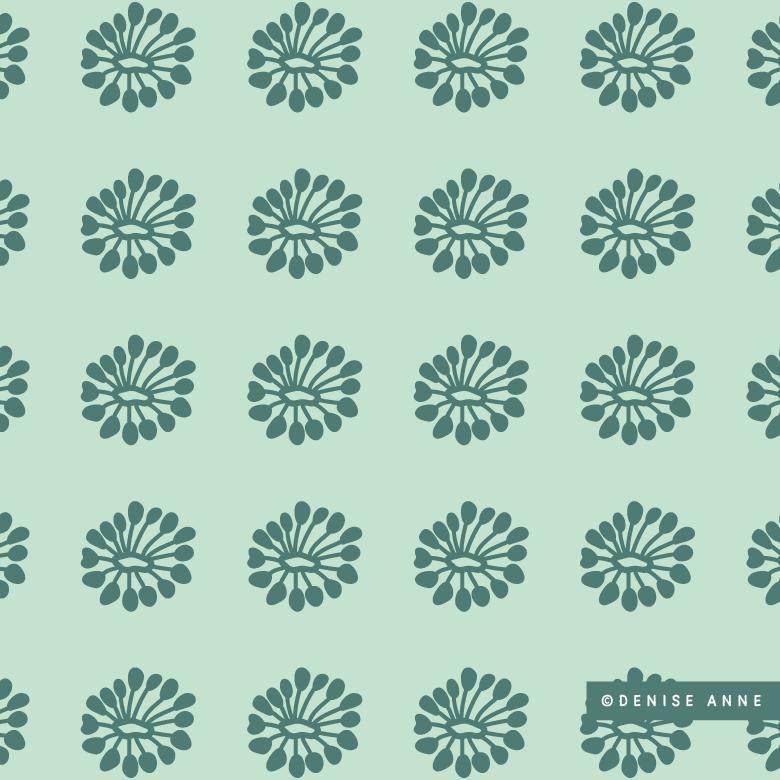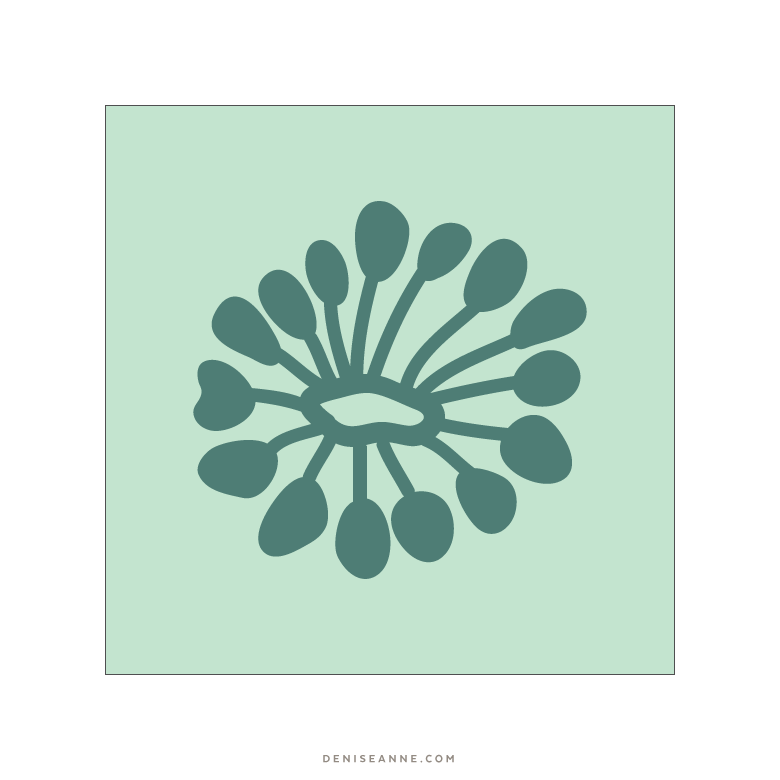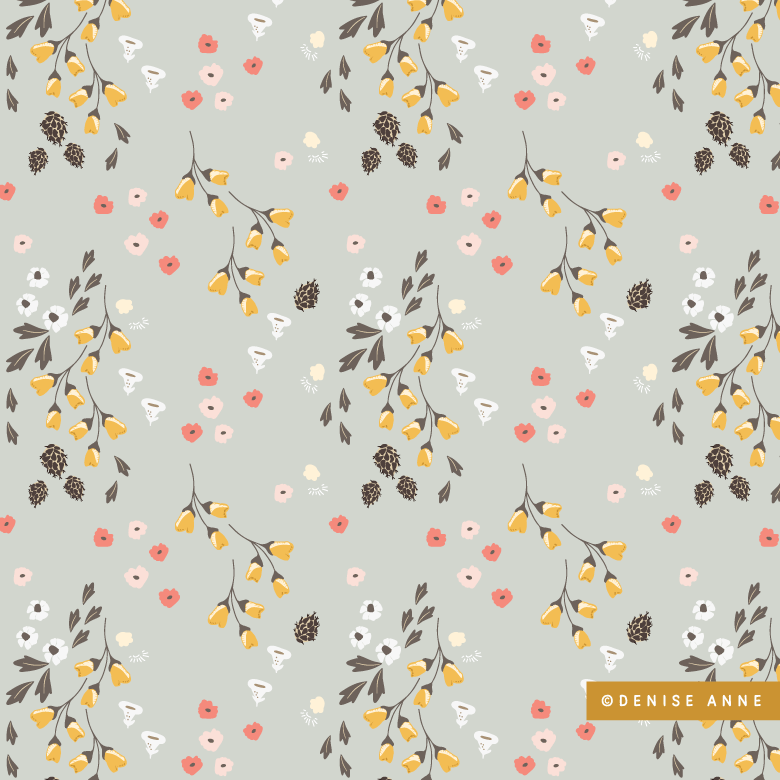Creating a Pattern Collection: Pattern Repeat Types
Today I am continuing my Creating a Pattern Collection blog series, and will be discussing the types of pattern repeats and how they are created in Adobe Illustrator. Once you have decided on how you would like to color your patterns (see part 2), you can begin to create your seamless pattern collection.
Types of Repeating Patterns
There are many types of pattern repeats. There is Block, Brick & Half Brick, Drop, Diamond, Toss & Random, Stripe, Dot, Plaids, Ogee (like a long diamond shape), to name a few.
In this post, we will look at some of my favorite pattern repeat styles in Adobe Illustrator.
Toss or Random Pattern
Creating random seamless repeating patterns is my favorite kind of pattern to make, so we will start with discussing this one first. What I love about random patterns is the interest you can create with this type of pattern.
Surface pattern design: Toss or Random Pattern
All of my hero patterns are usually a Toss or Random pattern, because I incorporate many elements, colors, and movement into this main pattern. Then, all of the coordinating patterns in the collection will be modeled after this one pattern design to compliment and play off of the details of the hero.
““A hero is the head cheerleader of the collection...it is dynamic, engaging, and fun.””
What Makes Up a Random or Toss Hero Pattern
Let’s look at my example hero pattern. It consists of 19 individual elements. There is no set number of elements you need to have to create a hero pattern design, just ones you sketched that work well together. But you do need to have enough motifs to incorporate into your design, so be sure to have several pages of sketches to pull from to create your random pattern layout.
My initial hand drawn sketches, were scanned into my computer, and then made into the final elements that make up the hero pattern.
Rough Sketches & their finished pattern elements
Not all the sketches shown in this example were used in this hero pattern. Some elements were used in other patterns within my Wild Flora pattern collection.
This is what the pattern looks like on the uncropped artboard in Adobe Illustrator.
Pattern design with overlapping edges on the artboard in Adobe Illustrator
In order for the pattern to be seamless, the elements must repeat exactly on all four sides of the square.
Top, bottom, left and right match exactly for a seamless repeating pattern design
Dot Pattern
A dot pattern is not necessarily a pattern of dots. It can be anything that makes up the dotted look to your pattern. A dot pattern is the same element or group of elements repeated in equal measurements from one another.
This is an example of a Dot pattern.
Example of a dot pattern in repeat
Studying What Makes Up a Dot Pattern
Let’s look at our example Dot pattern on the artboard in Adobe Illustrator. To make this type of pattern, the elements are repeated in all four corners, and within the center of the artboard.
The dot pattern is one of the easiest patterns to make because of its simple construction.
Example of a simple dot pattern
Complex Stripe Pattern
Another pattern repeat type is the Stripe pattern. A stripe can be made out of a single fill color, or multiple design elements can be used to create the stripe itself. Your stripes can be oriented vertical or horizontal.
This is an example of a Complex Stripe pattern.
Striped pattern design repeat example
Studying What Makes Up a Complex Stripe Pattern
Let’s look at our example Complex Stripe pattern on the artboard in Adobe Illustrator. To make this type of pattern, the elements are repeated in rows that are an equal distance apart from each other.
Complex stripe pattern on the artboard in Adobe Illustrator
Now Open For A Limited Time!
Block Pattern
Block patterns are composed of a single centered object, or group of objects within the pattern artboard. When added to the swatch palette, this same element is repeated in line with itself.
This is an example of a Block pattern.
Block pattern example surface pattern repeat design
Studying What Makes Up a Block Pattern
Let’s look at our example Block pattern on the artboard in Adobe Illustrator.
A single element on an artboard filled with color makes up this design
You can see here the repeating tile is a single shape (or group of shapes) with a filled color, or white background around it. You can adjust the spacing produced in the repeat by adjusting the size of your central object.
Diamond Pattern
A Diamond pattern is one that creates a Diamond shaped repeat. The diamonds can be connected, or they can be spread out. This pattern below is from my collection Thicket Thatch Patterns, which was inspired by nature. I like how the diamond repeat creates movement, almost like the elements are falling down to the ground in a forest.
An example diamond pattern repeat surface design
Studying What Makes Up a Diamond Pattern
Let’s look at our example Diamond pattern repeat on the artboard in Adobe Illustrator.
The groupings of elements are organized in a Diamond shape, but not connected to one another. You can connect the elements to form a more defined diamond, but I chose not to with this pattern.
I love experimenting with pattern repeats, combining pattern types, and utilizing the different styles of pattern repeats to create a certain look and feel to my pattern collections. Don’t be afraid to experiment with elements; or combine the most unexpected shapes and characters like horses, dancing cats, or whatever you can imagine!
Read the final post in this series, about Sharing Your Work.
